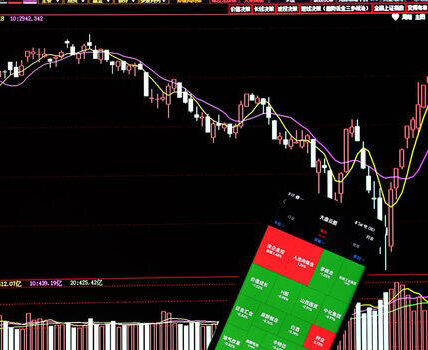Reckitt Share Price Analysis
Reckitt share price analysis reveals whether the current 48% drop makes it a FTSE 100 bargain or a potential value trap. Learn more about recent results, uncertainties, and potential value.
The share price of Reckitt Benckiser Group (LSE: RKT), known for popular brands like Dettol and Nurofen, has seen a significant decline over the past few years. Back in 2020, the stock was trading near 8,000p. Today, it’s around 4,130p – nearly 48% lower. Is this drop an opportunity to buy, or could it be a value trap? Let’s dive into a detailed Reckitt share price analysis to find out.

© Provided by The Motley Fool
Recent Results Show Modest Growth
Reckitt’s recent performance for the first half of 2024 wasn’t terrible. The company reported a like-for-like net revenue growth of 0.8%, and its free cash flow increased by 8.3%. These figures suggest that despite the challenges, Reckitt is managing to grow its core business.
Strategic Shift Towards Healthcare and Hygiene
Looking ahead, Reckitt has announced plans to sell its homecare brands, including Air Wick and Cillit Bang, by the end of 2025. This move is aimed at focusing more on its healthcare and hygiene segments. The homecare business generated around £1.9bn in sales last year, and analysts at Jefferies estimate that the sale could bring in nearly £5bn. This strategic shift could help Reckitt streamline its operations and concentrate on more profitable areas.
Significant Uncertainty Due to Litigation
Despite the positive aspects, there is significant uncertainty surrounding Reckitt due to ongoing litigation related to its Mead Johnson infant formula. Earlier this year, an Illinois court awarded $60m in damages to a mother whose child died after consuming Mead Johnson formula milk. More recently, a jury found that Abbott Laboratories’ formula for premature infants caused a severe bowel disease in an American girl, resulting in a $495m damages payout. With nearly 1,000 lawsuits filed against Reckitt and Abbott in US courts, the potential financial liability is substantial.
Potential Financial Impact of Litigation
Analysts at JP Morgan estimate that individual settlement amounts could range from $150k to $300k, translating to a total settlement cost of $500m to $1.5bn. Meanwhile, analysts at Bernstein believe that the total liabilities could be closer to $2bn. This wide range of potential outcomes makes it challenging to predict Reckitt’s future earnings accurately. Without a clear understanding of how much the litigation will cost, it’s tough to determine whether the stock is a bargain or a value trap.
Valuation Analysis Suggests Potential Undervaluation
Let’s assume that Reckitt manages to navigate the litigation without incurring severe financial damage. In this scenario, the Reckitt share price analysis might reveal a bargain at current levels. Recent analyses suggest that the hygiene business could be valued at around £20bn, using price-to-sales multiples similar to peers like Procter & Gamble and Church & Dwight. The health business might be worth about £24bn, based on valuation multiples in line with peers like Haleon and Johnson & Johnson. Adding in the potential £5bn from the sale of the homecare brands, we could be looking at a total valuation of £49bn (including net debt). Given that Reckitt’s current enterprise value is around £37bn, this analysis indicates that the stock might be significantly undervalued.
My Investment Decision
I have owned Reckitt stock in the past but decided to sell earlier this year due to the uncertainty surrounding the Mead Johnson litigation. While I may consider buying back in the future, I need more clarity on the litigation outcomes before making any moves. Until the uncertainty is reduced, I believe there are better stocks available for my portfolio.
Conclusion: Weighing Risks and Rewards
In conclusion, the Reckitt share price analysis presents a mixed picture. On one hand, the company’s strategic focus on healthcare and hygiene, coupled with potential undervaluation, suggests that there could be significant upside. On the other hand, the litigation risks introduce a high level of uncertainty that cannot be ignored. Investors need to carefully weigh these factors before deciding whether to invest in Reckitt at its current price.
Should You Buy Reckitt Benckiser Group Plc Now?
Don’t make any big decisions yet. With the ongoing quest for energy independence and the push towards net-zero emissions, informed investors might find lucrative opportunities in this sector.
Views expressed on the companies mentioned in this article are those of the writer and may differ from the official recommendations in our subscription services.
ALSO READ:
“FTSE All-Share Tracker Fund Returns: 5 Amazing Gains You Need to Know”



